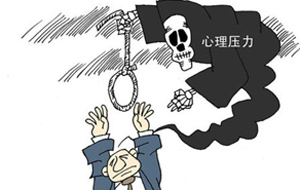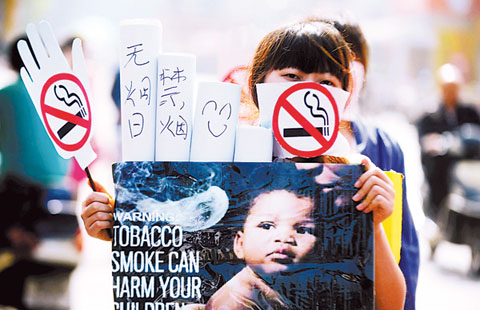Reflecting on the fate of left-behind children
(Xinhua) Updated: 2012-06-01 06:41BEIJING - Many Chinese are reflecting on the fate of left-behind children, as the youngsters often live a lonely and dysfunctional life far away from their parents.
Tuition fees, better life, or parental love? Parents are asked what their children need most. They say schooling and better life, but children say they need their parent's love most of all.
"Mum, I hate you. I don't need a new schoolbag or clothes and I'm not afraid of being hit by you. I only want you to come back...," reads a page of the diary of Chen Jiuying's daughter.
Chen, a migrant worker who seldom returns home, burst into tears when she read her daughter's diary. "Every time I leave home, I made a secret departure. I don't want my daughter to see me leaving," she said.
Each leaving time, Chen always makes up her mind that it is her last time to leave, However, when she returns to see her family's poor farmland and tile-roofed house, she hesitates again.
A majority of migrant workers prefer earning money in cities to looking after children at home.
"Most left-behind children do not lack material goods, but they are spiritually impoverished due to a loveless living environment, " said Chen Yi, chairwoman of the Women's Federation of Wuhu in east China's Anhui province.
"They (children) grow indifferent to others, which has brought about social problems," Chen said.
About 57 percent of left behind children suffer from psychological problems in Anhui, Zhejiang and Jiangsu provinces in east China, according to a survey conducted by Sociologist Wang Kaiyu.
Emotional instability, negativity, indifferent interpersonal relationships and a lack of self-confidence, are some of the symptoms shown by these children, the survey indicates.
It's a dilemma, migrant parents say, adding that without money earned from urban jobs, how would they support their children's schooling?
Safety concerns
China has nearly 58 million left-behind children, official statistics show, many of whom are susceptible to drowning, traffic accidents and other misfortunes due to the lack of family care.
Five children drowned in the village of Tangxi of Yichun city in East China's Jiangxi province on May 6, with the youngest aged only six.
A report of the All-China Women's Federation shows that about 20,000 youngsters died of accidents in 2008, half of whom were left-behind children.
The lack of parental care threatens children's safety, health, education, psychology and morality development, said Zhang Xuemei, deputy director of the Beijing Legal Support and Research Center for Children.
"The importance of parental education is usually ignored, and parents always leave children to relatives or neighbors," Zhang said.
More than 80 percent of stay-at-home children in central Hunan and southwestern Sichuan provinces are raised by grandparents, according to a report of the research center.
It said in some counties, more than one-third of the children are left to relatives to care for and some children lived in boarding schools.
However, the report said that the educational level of grandparents is usually low and they often ignore children's education.
Solutions
With the help of All-China Women's Federation, centers for caring leftover children have been built across the nation.
The Ministry of Public Security has steadily promoted reform of the country's household registration system, and the Ministry of Civil Affairs has prioritized the distribution of subsistence allowance to these children.
Wang Guoqi, a family education expert, said it should be advocated that at least one parent of a family should take charge of educating children at home.
Sociologist Wang Kaiyu said the government should allow children of migrant workers to receive schooling in cities close to their parents.
In the long run, China's traditional urban-rural dual system should be eliminated and reforms for household registration, educational and social insurance system should be further promoted, Wang said.
- Hundreds remain missing
- More Chinese law firms looking for overseas work
- Tornado hit area where capsize occurred, weather authority says
- Inspectors scrutinize local units' finances
- Flooding risk rising on the Yangtze, officials warn
- Relatives gather to wait for news of rescue efforts
- Key facts in the 12 hours after ship capsizes in Yangtze River
- Popular restaurant served notice for violating anti-smoking rules
- Live-fire drills to start near border
with Myanmar - Many netizens fall victim to fraud







